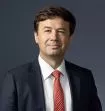- in United States
- within Law Practice Management, Wealth Management and Insurance topic(s)
As part of the sanctions packages adopted against Russia and Belarus in the summer of 2024, the European Union ("EU") introduced novel "best efforts" requirements, which seek to "hamper sanctions circumvention", by "keeping in check" the foreign subsidiaries of individuals and entities required to comply with EU sanctions ("EU Operators").
EU operators are thus obliged to "undertake their best efforts to ensure that any legal person, entity or body established outside the Union that they own or control does not participate in activities that undermine the restrictive measures provided for" in Council Regulation (EU) No 833/2014 ("Regulation 833/2014"), which consists of sectoral sanctions against Russia, and Council Regulation (EC) No 765/2006 ("Regulation 765/2006"), which includes both sectoral sanctions and asset freeze measures against Belarus. (Hereinafter, "EU sanctions" refers to Regulation 833/2014 and 765/2006).1
On November 22, 2024, the European Commission ("Commission") issued long-awaited guidance interpreting these "best efforts" obligations in Frequently Asked Questions ("Best Efforts FAQs"). Although the Best Efforts FAQs refer to Regulation 833/2014 only, they should apply as well as in the context of Regulation 765/2006.
This Legal Update summarizes key takeaways from the Best Efforts FAQs.
1. To which affiliates do the "best efforts" obligations apply?
The Commission confirms that "best efforts" obligations apply toallnon-EU entities that an EU Operator owns or controls,includingthose in Russia ("Non-EU Subsidiaries").2
As a reminder, recitals to the Regulations that introduced "best efforts" obligations indicated that:
- Ownership means "being in possession of 50 % or more of the proprietary rights of the legal person, entity or body, or having a majority interest therein".
- Controls is to be determined based on indicia, including "the power to appoint or remove a majority of the members of the administrative, management or supervisory body; the right to use all or part of the assets of the legal person, entity or body; managing the business of the legal person, entity or body on a unified basis, while publishing consolidated accounts; or the right to exercise a dominant influence over the legal person, entity or body".
2. Which activities are targeted by "best efforts" obligations?
"Best efforts" concern activities that "undermine" restrictive measures, i.e., which result in an effect that those measures seek to prevent.3
According to the Commission, the concept of "undermining" is distinct from "circumvention". "Undermining" negates the effects of sanctions, whereas "circumvention" corresponds to activities that are legal in appearance but aim at or result in avoiding the application of sanctions.4
The Commission also provides the following examples of activities that would be considered as undermining EU sanctions:
- A Non-EU Subsidiary supplies goods subject to export controls under EU sanctions to Russia/Belarus.5
- A Non-EU Subsidiary trades in goods produced in Russia that are subject to import controls under EU sanctions (even if those goods are produced by a Non-EU Subsidiary in Russia and even if trade occurs within the same group).6
3. When must "best efforts" be deployed?
"Best efforts" consist of actions that are suitable and necessary to prevent the undermining of restrictive measuresbutonly if the actions are "feasible".
According to the Commission, "feasibility" is to be assessed on a case-by-case basis, in view of the (i) nature, (ii) size, and (iii) relevant factual circumstances of each EU Operator.
In that regard:7
- The degree of effective control over a Non-EU Subsidiary can be considered:
-
- Where "control is entirely absent", an EU operator cannot be expected to prevent a Non-EU Subsidiary from participating in activities that undermine sanctions.
- However, liability would not be mitigated where the loss of control is the result of "inadequate risk assessment and management, coupled with risk-prone decisions of the EU operator".
- The risk of prosecution of executives and employees of the Non-EU Subsidiary under third-country laws is also a relevant factor.
4. What do "best efforts" require?
EU Operators are expected to implement a compliance framework applicable to Non-EU Subsidiaries–"Best efforts" require the implementation of appropriate policies, controls, and procedures.
The Commission further details its expectations as follows:8
- Those measures, again, depend on the (i) nature, (ii) size, and (iii) relevant factual circumstances of each EU Operator.
- The compliance resources of an EU Operator must be considered. Therefore, for example, an EU Operator that operates in a highly regulated sector with abundant compliance resources is expected to take substantial actions, regardless of the EU Operator's size.
- EU Operators must be aware of the activities conducted by Non-EU Subsidiaries that they own or control and understand those activities that risk undermining EU sanctions.
- Measures to be deployed include "internal compliance programs, systematic sharing of corporate compliance standards, sending newsletters and sanctions advisories, setting up mandatory reporting or organising mandatory sanctions trainings for staff, as well as setting up procedures to rapidly react to sanctions violations, including by reporting them to the EU operator that has ownership or control". Public statements by Non-EU Subsidiaries may also be considered.
The Commission further announced that it will prepare with Member States a "clear set of expectations for EU operators".
EU Operators are expected to block transactions–"Best efforts" require EU Operators to take "all actions necessary and feasible" to prevent the undermining of EU sanctions.
According to the Commission, EU Operators must use all available means to block transactions by a Non-EU Subsidiary that undermine EU sanctions. For instance, if goods are produced on the basis of IP rights transferred by an EU Operator to its Non-EU Subsidiary, the EU Operator must block the use of those IP rights to prevent the supply of these goods to Russia,evenif the transfer of IP rights was made before sanctions became applicable.9
In extenso, the Commission expects EU Operators to take all actions they can to block transactions by Non-EU Subsidiaries that would undermine EU sanctions.
5. When can liability arise as a result of "best efforts" obligations?
The Best Efforts FAQs indicate that an EU Operator may be held liable under the "best efforts" obligations in the following cases:
- Knowledge of activities undermining EU sanctions: The EU Operator is aware that its Non-EU Subsidiary engages in activities that undermine EU sanctions and accepts these activities.10
- Failure to block transactions undermining EU sanctions: The EU Operator fails to take actions that are necessary and feasible to prevent the undermining of EU sanctions by Non-EU Subsidiaries.11
- Failure to carry out appropriate due diligence regarding activities of Non-EU Subsidiaries: EU Operators cannot rely on a "no liability clause" if they failed to ensure awareness of the activities of their Non-EU Subsidiaries.12
Beyond the "best efforts" obligations, the Commission does not exclude the potential liability of EU Operators, based on anti-circumvention provisions, even in cases of mere knowledge of activities undermining EU sanctions carried out by their Non-EU Subsidiaries.13
6. Impact of the FAQs
The Best Efforts FAQs do not constitute binding rules and have sometimes been contradicted by the Court of Justice of the European Union.14 They nonetheless reflect the interpretation of the Commission and, as such, may be extensively relied on by enforcement authorities throughout the EU.
Accordingly, EU Operators should consider the implications of the Best Efforts FAQs regarding the activities of their Non-EU Subsidiaries and take appropriate actions to ensure full compliance with EU sanctions.
Footnotes
1. Article 8a of Regulation 833/2014 and Article 8i of Regulation 765/2006.
2. Best Efforts FAQs, FAQ 3.
3. Best Efforts FAQs, FAQ 1.
4. Best Efforts FAQs, FAQ 2.
5. Best Efforts FAQs, FAQs 7 and 8.
6. Best Efforts FAQs, FAQ 9.
7. Best Efforts FAQs, FAQ 4.
8. Best Efforts FAQs, FAQ 5.
9. Best Efforts FAQs, FAQ 7.
10. Best Efforts FAQs, FAQ 6.
11. Best Efforts FAQs, FAQ 7.
12. Best Efforts FAQs, FAQs 7, 8 and 9.
13. Best Efforts FAQ, FAQ 6.
14. See, e.g., judgment of September , 2024, Jemerak, C-109/23, C:2024:681.
Visit us at mayerbrown.com
Mayer Brown is a global services provider comprising associated legal practices that are separate entities, including Mayer Brown LLP (Illinois, USA), Mayer Brown International LLP (England & Wales), Mayer Brown (a Hong Kong partnership) and Tauil & Chequer Advogados (a Brazilian law partnership) and non-legal service providers, which provide consultancy services (collectively, the "Mayer Brown Practices"). The Mayer Brown Practices are established in various jurisdictions and may be a legal person or a partnership. PK Wong & Nair LLC ("PKWN") is the constituent Singapore law practice of our licensed joint law venture in Singapore, Mayer Brown PK Wong & Nair Pte. Ltd. Details of the individual Mayer Brown Practices and PKWN can be found in the Legal Notices section of our website. "Mayer Brown" and the Mayer Brown logo are the trademarks of Mayer Brown.
© Copyright 2024. The Mayer Brown Practices. All rights reserved.
This Mayer Brown article provides information and comments on legal issues and developments of interest. The foregoing is not a comprehensive treatment of the subject matter covered and is not intended to provide legal advice. Readers should seek specific legal advice before taking any action with respect to the matters discussed herein.




